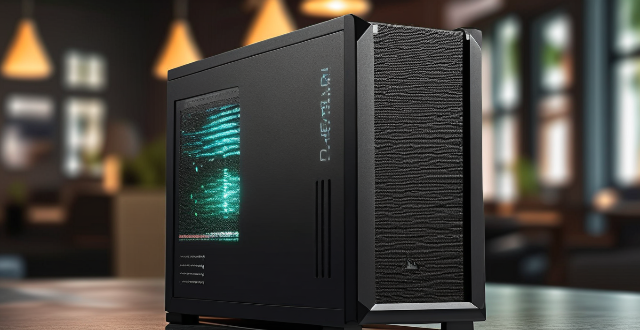When selecting a power supply unit (PSU) for your gaming PC build, consider factors like total wattage needed, efficiency ratings such as 80 PLUS certifications, form factor and connector compatibility, brand reputation and warranty, modularity options for cable management, additional features like silent operation or overclocking support, and examples of suitable PSUs like the Corsair RMx Series, EVGA Supernova, and Seasonic FOCUS Plus.

Choosing the Right Power Supply for Your Gaming PC Build
When building a gaming PC, selecting the appropriate power supply unit (PSU) is crucial. It's essential to ensure that your system has enough power to run smoothly and efficiently while also considering future upgrades and components like high-end graphics cards and multiple storage drives. Here are some key factors to consider when choosing the right power supply for your gaming PC build:
1. Determine Your Power Needs
- Calculate Total Wattage: Use an online PSU calculator or refer to the power consumption of each component in your build. Add them up to get the total wattage you need.
- Consider Future Upgrades: Leave some headroom for potential upgrades down the line, such as adding another graphics card or more storage devices.
2. Efficiency Rating
- 80 PLUS Certification: Look for power supplies with at least an 80 PLUS Bronze certification for better efficiency and less energy wastage. Higher ratings like Gold or Platinum offer even greater efficiency but come at a higher cost.
3. Size and Compatibility
- Form Factor: Ensure the PSU fits within your case's specifications. Common sizes include ATX, Micro-ATX, and Mini-ITX.
- Connector Count and Type: Make sure there are enough connectors of the right type for all your components, including SATA, Molex, and PCIe connectors.
4. Reliability and Brand Reputation
- Brand Trustworthiness: Choose well-known brands with good customer reviews and a reputation for reliability.
- Warranty: Look for power supplies with longer warranties, which often indicate better build quality and durability.
5. Modularity
- Fully Modular vs. Semi-Modular: Fully modular PSUs allow you to only use the cables you need, reducing clutter inside your case. Semi-modular units offer a balance between customization and ease of use.
- Cable Management: Consider how easy it will be to route cables through your case and manage them neatly.
6. Additional Features
- Silent Operation: If you prefer a quiet system, look for PSUs with large, slow-spinning fans or advanced cooling systems.
- Overclocking Support: If you plan on overclocking your CPU or GPU, ensure your PSU can handle the increased power demands.
Examples of Suitable Power Supply Units for Gaming PCs:
- Corsair RMx Series: Offers high efficiency, modular design, and excellent cable management options.
- EVGA Supernova: Known for its reliability, high efficiency ratings, and robust warranty coverage.
- Seasonic FOCUS Plus: Provides silent operation and high efficiency without breaking the bank.
By carefully considering these factors and choosing a reputable brand with features that meet your specific needs, you can ensure that your gaming PC build will have a reliable and efficient power source.